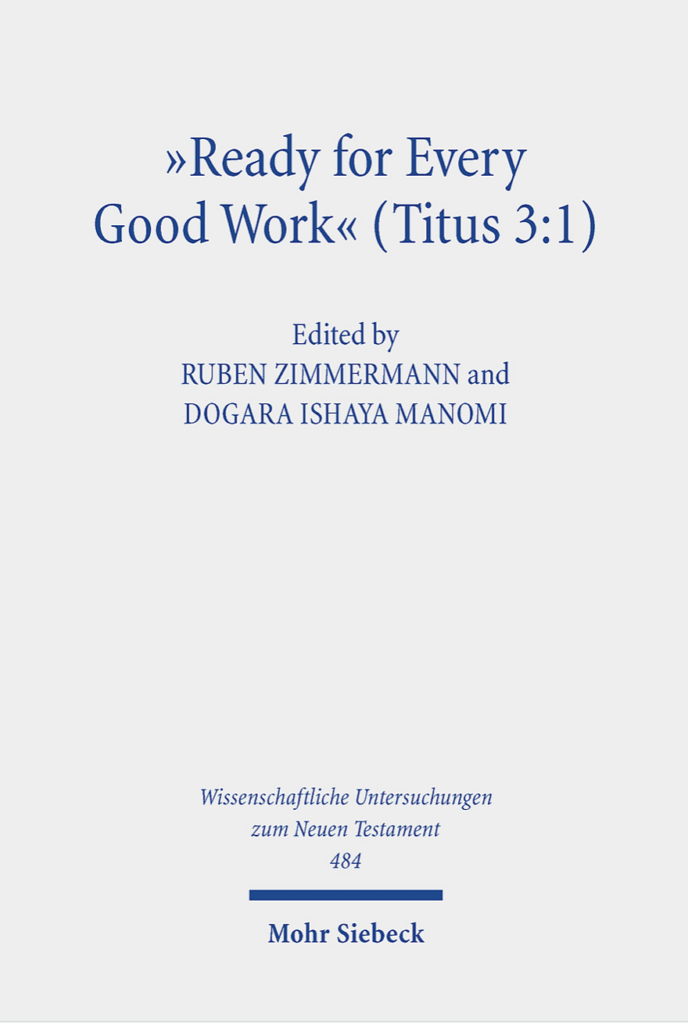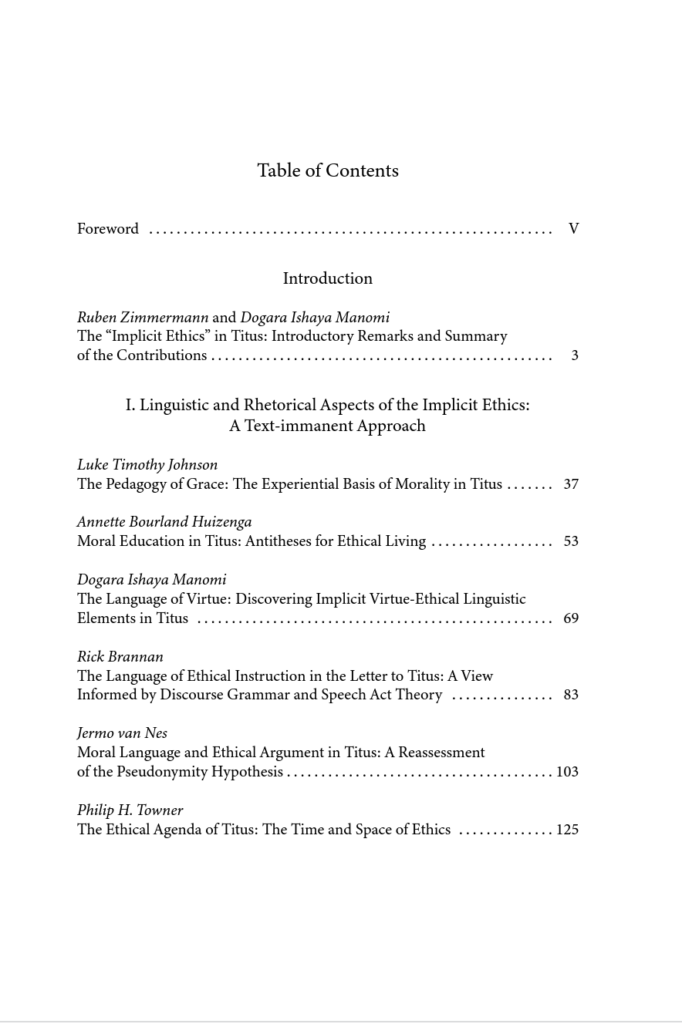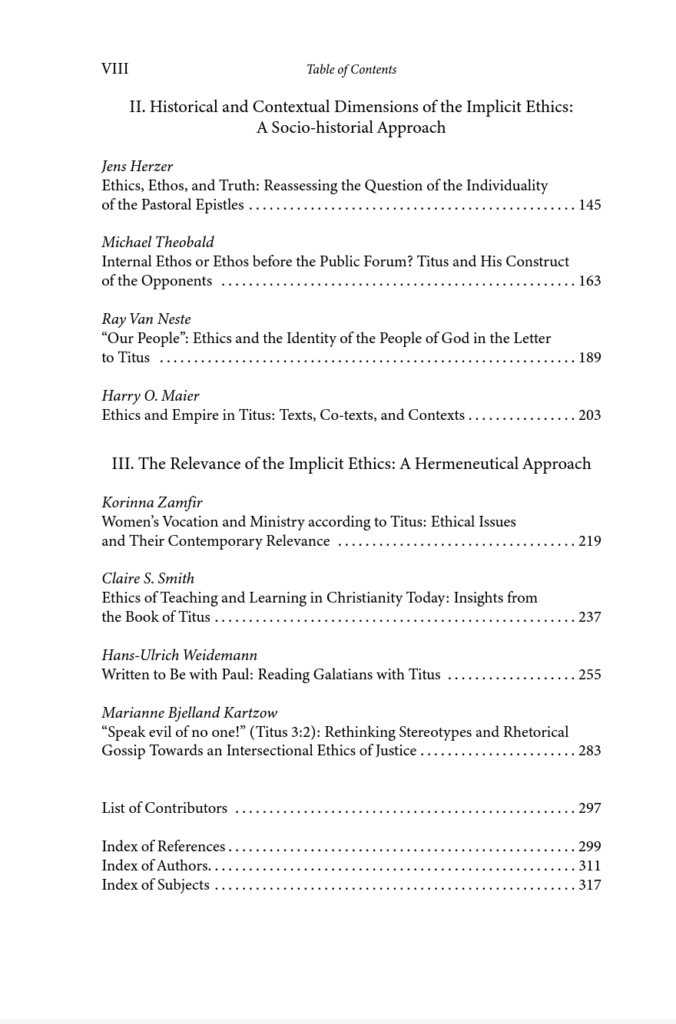The 2023 ETS program does not appear to list any sessions whose titles specify a connection to the Pastorals. Note the following possibilities, however:
The Evangelicals and Women session titled “Come Let us Reason Together: Women, Authority and Scripture”
David W. Hester, “Did Paul Accept the Apocryphon of Jannes and Jambres as Scripture?”
Julie Walsh, “Theological Motivations: Eph 5.33 Compared to Other NT Household Code Subsection Interpretations”
Kyeong Seo, “Anthropological Significance in the Emergence of the Concept ‘Conscience’ in the Pauline Epistles.”
.
The 2023 SBL Annual Meeting Program lists the following sessions which may be of interest to Pastorals researchers:
Isaiah Allen, Booth University College, “The Fictional Household of Titus 2:1–15”
Michael Bird, Ridley Melbourne, “Can We Place the Pastoral Epistles in the Chronological Space of the Second Century?”
Esther Cen, Seattle Pacific University, “A Chinese Interpretation of Youth Leadership and the Household Metaphor in 1 Timothy”
A. Andrew Das, Elmhurst University, “The Faithful Univira and Remarriage in the Pastorals”
Tobias Hägerland, University of Gothenburg, “To the Jew First but Also to the Greek: Why Are There Three Pastoral Epistles?”
Jens Herzer, Universität Leipzig, “Between Cowardice and Courage: A Philonic Background of 2 Tim 1:7?”
Lyn Kidson, Macquarie University, “‘Go Home!’ Divisions between Private and Public Space in the Pastoral Epistles“
Lyn Kidson, Macquarie University, “Intimate Partner Violence, Male Headship, and Reading 1 Timothy 2:13 as the Basis for Women’s Autonomy”
Scot McKnight, Northern Seminary, “Eusebeia as Social Respectability: The Public Life of the Christian Pastor”
Katherine Shaner, Wake Forest University, “Timothy, Slave of Christ, Slave of Paul?”
W. Andrew Smith, Shepherds Theological Seminary, “ECM Pastoral Epistles: Report”
Note also the panel discussion on Edith M. Humphrey, Mediation and the
Immediate God: Scriptures, the Church, and Knowing God, which appears to engage 1 Timothy 2:5 substantively.



